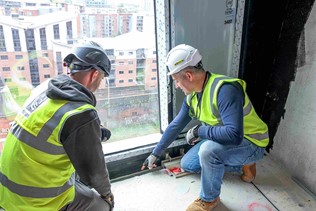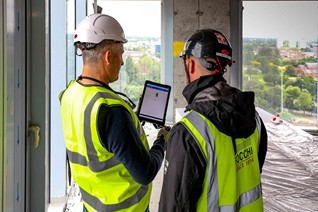
Adam Turk, CEO, Siderise Insulation and Chair, CPA Marketing Integrity Group (MIG)
Accurate product information is the cornerstone of building safety. Without it, the stakes of misguided specification, improper installation and non-compliance are high. This can jeopardise building performance, risking missed design goals and potentially compromising safety and longevity— especially when considering life-critical products such as passive fire protection.
With no set rules on how products should be presented, it can be a challenge for specifiers, contractors, consultants and other stakeholders to ascertain if they are recommending or using the most appropriate solutions. Manufacturers have a responsibility to go beyond simply producing and supplying products by championing integrity and aiding competency at every stage of the construction process.
Enable accurate specification
Whilst it is the specifier’s responsibility to select the correct product for their project, the onus is on manufacturers to make this as straightforward as possible for them. This means providing accurate and up-to-date product information that is accessible and unambiguous in its language. Any fire performance claims should be backed up with relevant test data and third-party certification found easily online or through technical support channels.
Good practice is already out there, but more work needs to be done to ensure it becomes standard practice across the industry. One way this is being driven at scale is through the Code for Construction Product Information (CCPI). By providing a benchmark for how product information should be created, presented, and marketed, the Code will allow everyone involved in specification and procurement to start from a level playing field, enabling greater confidence in a product’s suitability and verified performance.
Support installation integrity
No matter how diligent the specification process is, the performance of passive fire protection products can be undermined by poor-quality installation. It is important for manufacturers to stay engaged with the construction process, providing training, site services and tools and mechanisms that can aid proper installation.
One service we have developed at Siderise that has proven effective in supporting accurate installation and demonstrating compliance is free installation inspections. These are done either in-person by our experienced site services team who can visit a project or digitally through our Siderise Inspection App. The latter option helps to streamline the process and enables users to visually document their installation and have it reviewed offsite, ensuring it meets recommendations whilst identifying any areas which may need remedial action before the facade is installed.
The inspection report generated also provides a valuable record of these hidden elements once the build is complete, supporting the vital ‘golden thread’ of information which can be used to inform any future maintenance or building work.
Remember competency starts at home
Manufacturers must champion internal competency too. The eleventh clause of the CCPI asks that participants “...ensure that anyone conveying ‘Product Information’ is competent to the level of knowledge required for their role.” Industry stakeholders rely on manufacturers to give accurate guidance, and empowering internal teams with the skills, knowledge, experience, and behaviours necessary to do this is critical.
Ultimately, experts create experts. By sharing expertise with the industry at every interaction, whether that’s project support from technical or site services or a media enquiry to the marketing team, we can help to support a more comprehensive collective understanding of the importance and function of passive fire protection.
Go beyond manufacturing
In an industry where calls for competency are increasingly urgent, construction product manufacturers— especially those producing life-critical products— have a significant part to play in ensuring the industry is equipped with the products and knowledge it needs to deliver safer and longer-lasting buildings.


For more information and guidance on passive fire protection, please visit www.siderise.com
END
